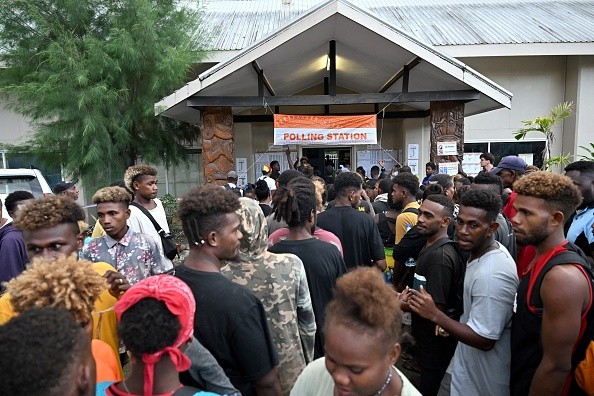
Solomon Islanders have begun voting in a national election, the first since the prime minister, Manasseh Sogavare, struck a security pact with China in 2022, drawing the Pacific Islands nation closer to Beijing.
Sogavare promised to strengthen ties with Beijing if re-elected, but his primary rivals wanted to curtail China's growing influence.
The US, China, and Australia will closely monitor the election's possible effects on regional security. Opposition parties argued that voters in the Solomon Islands would prioritize issues related to poor roads, education, and faltering health facilities.
Large groups of people flocked to the capital of Honiara when voting began at 7 am local time to cast their ballots outside guarded election booths.
In the Solomon Islands, a country of around 720,000 people spread over hundreds of volcanic islands and coral atolls, voting day presents a huge logistical problem.
Most of the 420,000 registered voters will have a voice across the 50 national seats. This year marks the first time elections for eight out of ten local governments coincide with the national vote.
Voting papers and ballot boxes have been dispatched by boat, aircraft, and helicopter to the many remote communities that comprise the "Hapi Isles."
Teams of international observers are on hand to supervise voting in a country where elections have the potential to spark turmoil.
Papua New Guinea, New Zealand, and Australian police are stationed there to support the overworked local forces in maintaining peace.
This week, the Chinese embassy in central Honiara rapidly erected a temporary steel fence out front, likely in anticipation of the possibility of violence after the vote.
Furthermore, the Solomon Islands' relations with China have become closer under Sogavare. Although the specifics of the security agreement he signed with Beijing in 2022 are unclear, Australia and the US were concerned about China's growing dominance in the Pacific.
This election marks the first since the Solomon Islands broke diplomatic ties with Taiwan in 2019 and endorsed Beijing's "One China" policy instead.








